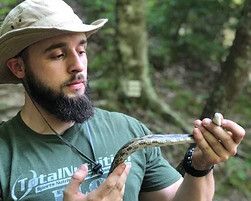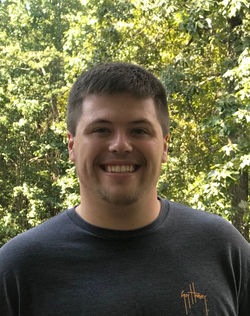
Research

.jpg)



The Team
Summer 2020
Research while Social Distancing
We will get through this together!
Schwartz Lab Members
Interested in joining the lab? Click here
Principal
Investigator

Dr. Tonia S. Schwartz Curriculum vitae
Dr. Tonia Schwartz started her research career as an undergraduate at Iowa State University working with Drs. Bonnie Bowen and Carol Vleck using genetic markers to study populations of jays and to determine the sex of penguins. While doing a Masters of Science at University of South Florida with Dr. Steven Karl, she obtained a foundation in Population and Conservation Genetics while deciphering the population structure of gopher tortoises. Before starting her PhD she spent four years in Australia conducting research on diverse topics including fisheries management, speciation and hybridization, molecular evolution of metabolic proteins, and sexual selection. As a genetics PhD student at Iowa State University she was an NSF-IGERT fellow in Computational Molecular Biology, a NSF-GK12 fellow, and was advised by Drs. Anne Bronikowski and Jo Anne Powell-Coffman for her dissertation. During this time she focused on identifying how molecular stress response networks can diverge between natural populations of garter snakes that are at either end of the pace-of-life continuum. A NSF Doctoral Dissertation Improvement Grant in part funded this work, which was strongly dependent on genomic and transcriptomic approaches. She was awarded a James S. McDonnell post-doctoral fellow in complexity science, which she took to University of Alabama at Birmingham to work in the Office of Energetics with Drs. David Allison and Julia Gohlke. During this time she studied transgenerational affects of stress on metabolism, reproduction, and longevity, and the evolution of molecular networks. In 2015 she was hired as an Assistant Professor at Auburn, and thus the Schwartz lab of Functional and Ecological Genomics was established.
Postdoctoral Fellow

Dr. Aaron Reedy, NSF Broadening Participation NSF Postdoctoral Fellow
Dr. Aaron Reedy studies the evolutionary ecology of separate sexes. He is currently an NSF Postdoctoral Research Fellow in Biology researching the evolution of sex differences in aging using lab and field studies with brown anole lizards. In addition to his scientific research, Reedy’s fellowship supports his efforts to broaden participation for groups under-represented in biology as he brings DataClassroom to schools serving a high percentage of minority students in Chicago and Alabama. With the support of the Jefferson Scholars Foundation, Reedy developed Dataclassroom as a tool for teaching students in grades 6-12 data skills and analysis. He is also a cofounder of the NSF supported Evolution Education program to provide professional development experiences for middle and high school teachers from across the country. Prior to his career as a scientist, Reedy was an award-winning science teacher in the Chicago Public Schools.

Abby Beatty, PhD Candidate, CMB Fellow
In 2016, I completed a B.S. Degree in Biology: Pre-Med at California University of Pennsylvania. After realizing my passion for research, I decided to obtain a Ph.D. through Auburn University. I spent my first year doing rotations and found that my true passions lie with the Schwartz lab, integrating a combination of bioinformatics, function genomics, evolution, and molecular biology. For my thesis, I will be focusing on the Insulin and Insulin-like signaling network and its diversity within squamates. I will be looking at the effects of Insulin-like Growth Factors on different physiological mechanisms as well as possible trade-offs during life-history stages. Through this process, I hope to aid the lab in an understanding of the evolution and function of the diversity of IGF proteins in reptiles.
Graduate Students

Amanda Clark, PhD Candidate, CMB Fellow, NSF-GRF Recipient
I attended the University of Alabama at Birmingham (UAB), followed by the completion of a Bachelors of Science in molecular biology in 2013. I worked in healthcare, and continued research with Dr. Marek Napierala within the Stem Cell institute where we focused on the trinucleotide repeat disorder, Friedreich's Ataxia. Additionally I took on the role of Camp/Education Director for Fresh Air Family, a Birmingham non-profit organization focused on educating youth and getting families outdoors enjoying and learning about nature. These two experiences guided me to the Schwartz laboratory where I will be completing my goal of becoming a molecular ecologist. My research interests revolve around investigating the biological pathways and systems responsible for various ecological patterns observed in the field of ecology. I am also interested in the genetic and epigenetic modifications that are involved in phenotypic plasticity and polymorphisms in reptiles. Employing reptilian cell culture and functional genomics, I am excited to investigate the role of the insulin/insulin-like signaling (IIS) network in body size evolution happening to insular reptilian populations found on the California Channel Islands!

Randy Klabacka, PhD Candidate, Summer CMB Fellow
I am fascinated by the coevolutionary relationship between mitochondrial and nuclear genomes. I am interested in the role sexual reproduction plays in maintaining a healthy mitonuclear marriage, and analyzing the effects of parthenogenesis on mitochondrial dysfunction using physiological methods within a phylogenetic context.
Twitter: @R_Klabacka Link to CV

Dasia Simpson, PhD Student
I completed my B.S. in Biology at Alabama Agriculture and Mechanical University in 2016. Now as a graduate student at Auburn University, I am interested in how organisms respond to stress in ecologically relevant environments. Specifically, I look at responses at a transcriptomic level in Sceloporus undulatus, the eastern fence lizard, when exposed to heat and fire ant envenomation. I am also intrigued by Daphnia pulicaria, a microscopic water crustacean, and their selective pressures that enable populations to survive in toxic algae.

Sammi Smoot, PhD Student
Sammi is working on population genetics of mouse lemurs and the role of population structure and deforestation on the genetic variation of their diseases.

Ryan Hardin, MS Student
Ryan graduated from the University of North Alabama in 2017 with a B.S. degree in Biology. He has always found reptile anatomy and physiology amazing as well as their reproduction. He enjoys every minute that he get to work with them and he always looking to learn more about them.
Undergraduate Researchers

Callista Beaumont, Undergraduate Research Student
Callista is a senior from Newnan, GA, who is majoring in Integrative Biology with a Pre-Veterinary concentration. She plans on continuing her education here at Auburn University by pursuing a MS in Biological Sciences, as well as Veterinary school in the near future. She’s extremely excited to start gaining experience in undergraduate research within the Schwartz Lab and is looking forward to working with brown anoles and determining sex-specific expression patterns and how they compare between different age groups

Megan Benedict, Undergraduate Research Student
Megan is a senior from Madison, Alabama majoring in Biomedical Sciences with a Pre-Medicine concentration. She is a member of the Auburn University Danceline and is the Greeksing chair for her sorority. She is very excited for the opportunity to be working in the Schwartz Lab and looks forward to studying the role of growth factors in the brown anole lizard.
.png)
Kimberly Glenn, Undergraduate Researcher
Kimberley is a junior who has been helping manage and care for our brown anole colony and longevity experiments along with doing experimental procedures with the animals.

Alexis Lindsey, Undergraduate Researcher
Alexis is a sophomore from Huntsville, AL, majoring in Ecology/Evolution/Behavior, and is a member of the AU Chamber Choir. She is helping with the care of a brown anole colony and gathering data for the Aging Anoles project. Alexis is excited to delve into the blindspot of the sex dimorphism of longevity! She is aiming for a career in herpetology, and is especially intrigued by regenerative abilities in salamanders, as well as snake ecotoxicology.
.jpg)
Taylor McKibben, Undergraduate Researcher
.jpg)
Annie Reed, Undergraduate Researcher
Annie is a senior from Auburn, Al who is majoring in Integrative Biology with a Pre-Veterinary concentration. She has been working in the Schwartz lab to care for lizards and studying the expression of the Insulin Receptor and the Insulin-like Growth Factor Receptor in the context of female reproduction in brown anole lizards. She also works at the Auburn University swine unit. She has a strong desire to help all animals, both large and small. She plans on obtaining a MS in biological sciences and attending Veterinary school after.
Previous Lab Members
Postdoctoral Fellows
Dr. Rory Telemeco, 2017. Now Assistant Professor at California State University, Fresno
Graduate Students
Aundrea Westfall, MS 2018. Now PhD student with Dr. Todd Castoe at University of Texas, Arlington
Undergraduate Researchers (updated 2020)
Milica Courtenay, 2018-2020, Telomeres in cell culture, paternity analysis in anoles
Holden Smith, 2019-2020, Development and maintenance of roach breeding colony for feeeding anoles
Kami Blackmon, 2019-2020, Validation of Cell lines via PCR
Mary Kathryn Allman, 2018-2019, Laboratory Technician, Cell line validation
Jenny Theiu, 2019, Summer Warm Water Ecology REU Fellow
Bailey Howell, 2019, Summer Bioinformatic REU Fellow
Jarrod Naylor, 2018-2019
Emma Hale, 2016-2019. Quantifying the prevalence of the West Nile, Rift Valley Fever, and Dengue Fever Viruses
across Mouse Lemurs Populations from Madagascar.
Now in Medical School
David Mote, 2017-2019. Telomeres as biomarkers of aging in lizards.
Now in Nursing School
Noah Cross, 2018-2019. Expression of corticosterone receptors in lizards.
Shawn Yates, 2017-2018. Divergence if Insulin-like signaling proteins in Anolis lizards
Now MS student in Virology
Devin Taylor, 2018. Evolution of Daphnia populations in response to stressors.
Now at Project Horseshoe Farms: https://www.projecthsf.org
Sandor Manhay, 2018. Bioinformatics REU student. Evolution of the glucocorticoid receptor.
Now a MS student
Bethany Pierce, 2018. Warm Water Ecology REU Fellow. Evolution of Daphnia populations in reponse to stressors
Hannah Choe, 2017-2018. Paternity analysis in Anolis.
Now in Medical School
Alexia Huguley, 2017.Bioinformatics REU student. Gene expression in response to caloric restriction in Daphnia.
Thomas Witt, 2016-2017. Used genetic techniques to quantify lizard prey items from fecal samples
Dasia Simpson, 2016. Bioinformatics REU. Assembled blood transcriptomes.
Now a PhD student in our lab!
Abbey Golson, 2016. Genotype snakes based on their mitochondrial sequence.
Jamison Brown, 2016. DNA isolations
Mark Raley, 2016. Measured DNA damage using comet assay.
Hye Jin Park, 2016. Using DNA markers to determine the sex of baby mice
 |  |  |  |
|---|---|---|---|
 |  |  |  |
 |  |  |  |
 |  |  |  |
 |  |  |  |
 |

